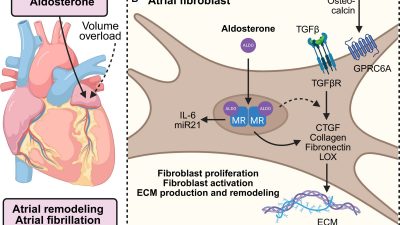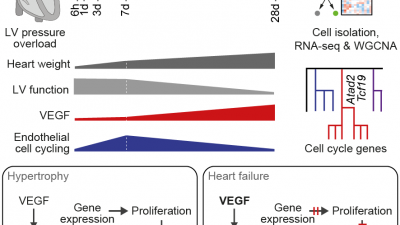Aldosterone and MR in atrial fibrillation
In our recent article, we review what is currently known about the role of aldosterone and the mineralocorticoid receptor in atrial fibrillation, summarize the mechanistic basis as supported by experimental...
Regulation endothelial cell cycle arrest at the transition from cardiac hypertrophy to heart failure
Increased load leads to cardiac hypertrophy and endothelial cells play a vital role in maintaining oxygen supply to the heart through angiogenesis. However, insufficient angiogenesis contributes to the progression of...
Cell Type–Resolved Transcriptome of Aldosterone-Induced Atrial Myopathy and Arrhythmia
There is emerging evidence that mineralocorticoid receptor antagonists reduce the burden of atrial fibrillation in patients with or without heart failure. In this study, we show that aldosterone infusion drives...
Gene expression networks in endothelial cells from failing human hearts
Chronic heart failure is associated with adverse remodeling of the heart that is typically characterized by cardiomyocyte hypertrophy. This requires the formation of new capillaries to maintain oxygen supply. Insufficient...
Cardiac injury and gene expression induced by catecholamine treatment is largely reversible
Catecholamines are commonly used as therapeutic drugs in intensive care medicine to maintain sufficient organ perfusion during shock. However, excessive or sustained adrenergic activation drives detrimental cardiac remodeling and may...





